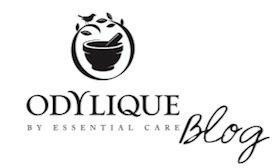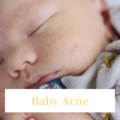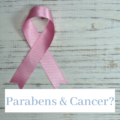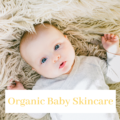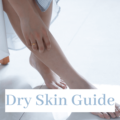Sore, cracked nipples can make establishing and continuing breastfeeding miserable. Along with our cracked nipple balm, here are some time-tested natural ways to make it easier for you and baby.

Breastfeeding is a beautiful, natural experience that helps bonding and increases wellbeing in both Mum and baby, but it can also be hard and often painful.
It can take a little while for you and your baby to get into the swing of it. While you do, nipples can often get very sore, cracked and even infected (mastitis) which makes it harder.
Many women find they just cannot carry on, and that’s ok, but if you do want to keep going there are some natural, easy to follow ways that can help make it easier (including this amazing cracked nipple balm, more on that later):
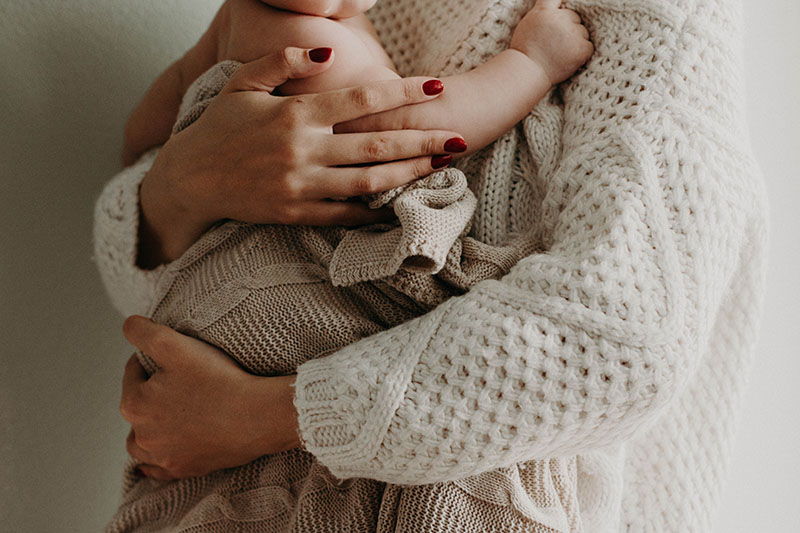
Make sure you’re comfortable:
There are many holds you can try, and different positions like the rugby hold, feeding in a sling and propping yourself and baby up on cushions.
Experiment with what works for you, so you can sit for as long as you need to. Baby should unlatch when they’re full, but there is no guarantee how long that is and if you’re shifting around, you will both find it trickier.
Invest in a natural cracked nipple balm:
Making sure that you’re using a natural cracked nipple balm before you even start your breastfeeding journey can prepare your nipples for the extra work they’re about to do.
A soothing balm helps ease the itching, pain and soreness you can experience during the learning phase of breastfeeding, making it much more manageable whilst you’re getting the process down.
Our award-winning organic nipple cream is made with organic coconut and extra virgin olive oils, plus shea butter and calendula to soothe and protect from cracked nipples or soreness.
We always suggest you apply your nipple balm directly after feeding, to ease any discomfort and ensure it’s absorbed fully, but there may be residue on the breast despite this, so our cracked nipple balm is fully natural and organic to ensure safety and comfort for the baby.
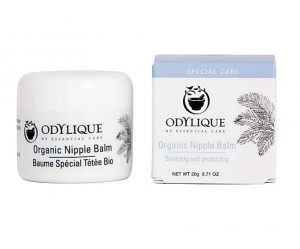
Use your own breast milk:
Breast Milk is antimicrobial and is super soothing, so you can dab a little on the affected area before feeding (and before using your balm) to help keep infection at bay. It must be fresh and if you or baby have any signs of thrush, this method is best avoided.
Try a warming compress:
In the first few days after milk comes in, your breasts can feel extremely heavy and painful and you may need to feed or release milk a lot to be comfortable.
Simply using a cloth soaked in warm water and wrung out (a spare muslin from your baby is ideal) as a heat pad can be a great way to draw down your milk and ease the pain of your sore nipples.
Change your breast pads often:
Breast-pads can be helpful to prevent embarrassing leakage but the moisture they hold, coupled with the warmth from your breast is a perfect breeding ground for bacteria that can cause havoc with your already cracked nipples.
Change them regularly to keep your breast area clean
Finally, don’t:
· Wash your nipples too often – they are naturally lubricated and if you rinse that away they are much more prone to dryness
· Rush your feeds. New mums are under such pressure to have everything under control but breastfeeding cannot be rushed. Trying to get it over with (while often totally understandable) can lead to a stressed baby trying to suck too fast or too often and damage the nipple further
· Use anything with essential oils on your breasts as they can be absorbed into your milk and make baby unwell; or at the very least taste really unpleasant
· Try teabags, or cabbage leaves. These are old wives’ tale that in reality often make you feel really uncomfortable and are shown to be largely unhelpful
· Use nappy creams or Vaseline – these stop air getting into the breast and can trap bacteria in, as well as being toxic for your baby. Choose a safe nipple balm instead
· Lose heart: Breastfeeding is a hugely emotive topic and any woman finding it hard can feel really bad about it. It’s ok to find it challenging and it’s ok to need time to get used to it – be patient with yourself and your baby as you learn this new skill and before you know it, it will be second nature.
Try our organic, natural cracked nipple balm here
What is Dandruff? How To Beat A Flaky Scalp Naturally.

You take care of your hair; you wash it regularly,…
